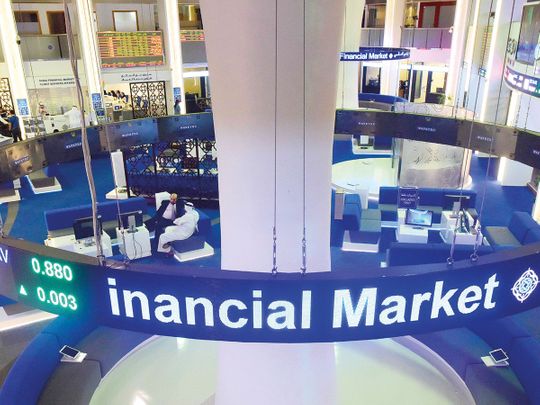
Dubai: UAE markets may still be prone to aftershocks from an escalating virus outbreak, but investors are not in a hurry to sell their holdings just yet.
“We have not received a single call from any investor who wants to sell out as yet,” said Anita Gupta, head of equity strategy at Emirates NBD Group, adding that investors were rather looking at it more as an opportunity than a scare.
Investors have been asking whether this would be the right time to start adding emerging market equities to their portfolio, but analysts cautioned that although there is no need for a sell-off, it may not be the right time to enter the market.
“Many people who missed out on the opportunity earlier are asking when can they enter emerging markets”, said Gupta, speaking in the backdrop of the bank’s release of global investment outlook report for 2020. “And our answer is that if you have already invested, it is wait-and-see time.”
However, Gupta cautioned that the assets shouldn’t be included until the rising threat of the coronavirus outbreak dies down. “Let us wait and see when the factories reopen in February in China and supply chains return to normalcy.”
Rising uncertainty
Many Chinese provinces are extending their shutdowns to February 10. But there has been also rising uncertainty on whether factories will reopen next week, which could be the catalyst for risk aversion to return.
While investors sought clarity on an unending spike in virus-driven deaths, there have been unconfirmed reports of a possible cure in the works, which also indicate that a cocktail of certain drugs appear to be fighting the coronavirus. “Markets are still primarily focused on the coronavirus and news that HIV and flu drugs show promise in treating the coronavirus will keep the risk-on rally going strong,” said Ed Moya, a market analyst with Oanda. “It seems, the world is nearing a cure for the coronavirus and that could mean markets may only need to price in only one bad quarter for China.”
“Financial markets may get overly optimistic on these early headlines, but the playbook remains once markets are beyond the virus, risky assets will remain supported on central bank stimulus and the global growth rebound story.”
Although this has provided a brief relief for investors, the World Health Organisation (WHO) has down played the reports, saying there have been no proven effective drugs against coronavirus so far.
Definite economic hit
Even if the virus is successfully confined to China for the most part it is clear that the outbreak will have some negative effect on the global economy, at least during the first quarter.
China accounted for less than 5 per cent of the global economy in 2003, when a similar flu-like epidemic Sars first struck. But more than 17 years since then, an average real growth rate of 9.1 per cent annually has seen China grow to around 20 per cent of global gross domestic product.
There are few global economies that would not be to some degree affected by a surprise slowdown in China, experts said. However, latest economic data out of virus-stricken countries in Asia showed that growth was not slowing as bad as most analysts feared, implying an unexpected sign of resilience.








